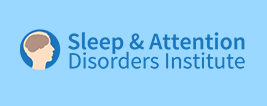Does Melatonin help Insomnia?
Does Melatonin Help Insomnia?
Does Melatonin really help insomnia? It is a hormone produced in the brain. We secret it continuously when it is dark outside. One purpose seems to be to signal that it is dark outside. We do not know what other purposes it has.

Taking it by mouth is helpful in changing our body’s time clock. So if we tend to go to bed late and get up late, taking it in the evening (a few hours before planned bedtime) may help us fall asleep sooner and get up sooner. It has a very short life in the body. Melatonin by mouth may make us a little sleepier, but it does not help in staying asleep.
We do not know the effects of taking it by mouth for a long time. When we take a hormone by mouth, we suppress the hormone’s production by the body. We do not know if this causes problems or what problems. We would not willingly take hormones casually. We would certainly not give them to our children. Yet we willingly take melatonin, in very large doses, for long periods. We even give our children very large doses for long periods. We use doses much larger than the body’s production.
There is a medicine that works like melatonin. It works on melatonin receptors. It is available for insomnia. Its name is ramelteon (RozeremR). It has never really taken off because it does not work very well for poor sleep.
FDA cannot regulate melatonin
Another problem with melatonin is that it is available as a natural substance, not as a medicine. Therefore, the FDA cannot regulate it. When the New York attorney general’s office investigated natural substances sold, many of them did not contain the substance stated on the bottle. Many did not have the amount that stated on the bottle. Many others contained other stuff. Therefore, when we buy it as a tablet or capsule, we have no way of knowing whether these tablets really have melatonin. Alternatively, do they have something like diphenhydramine (found in most over-the-counter sleeping pills)?
I suggest to my patients that they avoid melatonin for poor sleep. I particularly suggest they avoid giving it to their children. I do recommend it for a short period for circadian rhythm disorders (disorders of the body clock). Even for these disorders, bright light is more useful.









